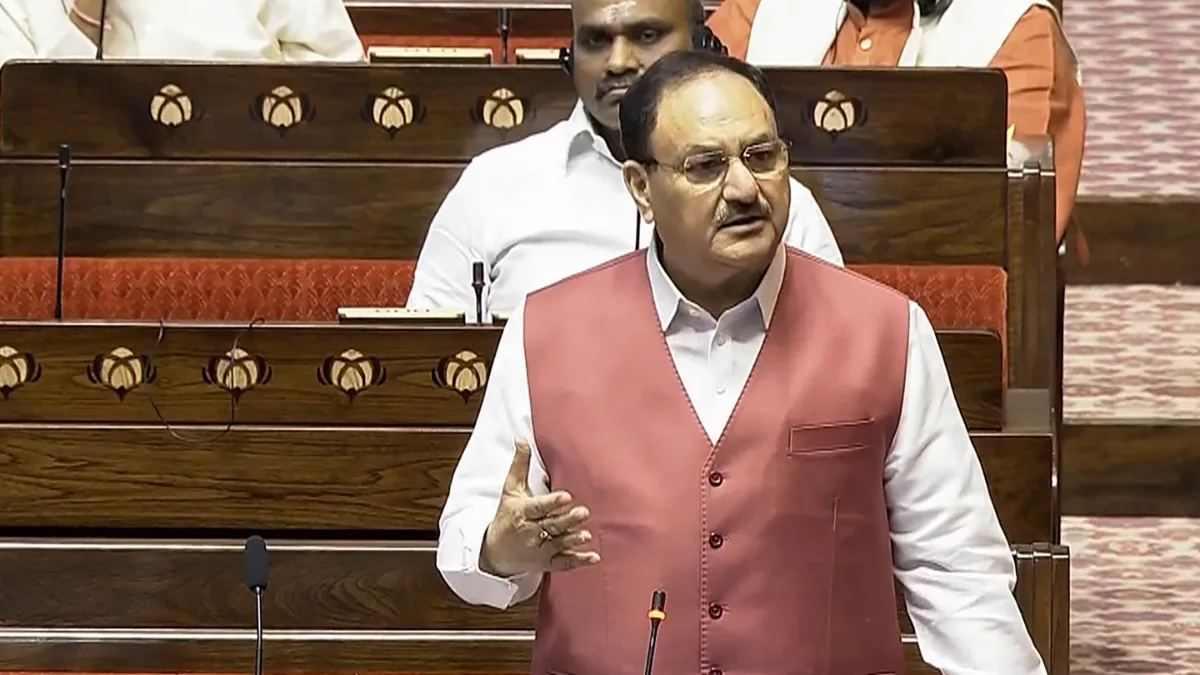BJP national president JP Nadda emphasised the effectiveness of the Pradhan Mantri Gram Sadak Yojana (PMGSY) during a recent address. He noted that it was the first time a comprehensive and foolproof scheme was introduced for rural road development in India.
BJP national president JP Nadda said, "...For the first time Pradhan Mantri Gram Sadak Yojana and it was a full proof scheme. Under this scheme road from the starting point to the end point, its budgeting was done together- in one go. Then in every constituency, all-weather road budgeting was done..."
Integrated budgeting approach
Nadda highlighted the scheme's unique approach, where the budgeting for roads from the starting point to the end point was done in one go. This ensured a seamless and uninterrupted development process.
Meanwhile, Union Health Minister informed the Rajya Sabha that epidemics such as the Nipah virus outbreaks and COVID-19 have originated from non-human sources and crossed over to humans at the animal-human interface. He emphasised the significance of a One Health approach, integrating human, animal, and environmental health to address emerging diseases.
Role of ICMR in addressing Zoonotic Diseases
The Indian Council of Medical Research (ICMR) reported that numerous epidemics and pandemics of zoonotic origin have evolved into public health emergencies of international concern (PHEIC). These include the Nipah virus outbreaks (2001 onwards), SARS (2002-03), H5N1 avian influenza (2005 onwards), H1N1 (2009), MERS (2012), Zika (2014), and SARS-CoV-2 (2019).
National One Health Mission initiatives
In July 2022, the Prime Minister's Science, Technology, and Innovation Advisory Council (PM-STIAC) recommended creating a 'One Health Mission' to coordinate and integrate existing activities. The National One Health Mission (NOHM) involves multiple ministries and departments, focusing on disease prevention, control, and pandemic preparedness across human, animal, plant, and environmental sectors.
Key participants and strategies
Key participants in NOHM include the Ministry of Health and Family Welfare, Ministry of Environment, Forests and Climate Change, Ministry of AYUSH, Department of Health Research, Department of Biotechnology, Department of Pharmaceuticals, Department of Animal Husbandry and Dairying, Department of Science and Technology, DRDO, NCDC, NDMA, and the office of the Principal Scientific Advisor. NOHM's pillars include technology-enabled integrated surveillance, a national network of biosafety level 3 (BSL-3) laboratories, and collaborative research and development for medical countermeasures.
Governing mechanism and financial outlay
The governing mechanism of NOHM features an Executive Steering Committee chaired by the Health and Family Welfare Minister and a Scientific Steering Committee chaired by the Principal Scientific Advisor. After a comprehensive assessment of ongoing programs, a scheme with a financial outlay of Rs 386.86 crores has been approved to strengthen R&D towards integrated disease control and pandemic preparedness.
Pradhan Mantri - Ayushman Bharat Health Infrastructure Mission (PM-ABHIM)
To enhance the capacity of health care facilities in identifying and managing new diseases, the Pradhan Mantri - Ayushman Bharat Health Infrastructure Mission (PM-ABHIM) has been launched. Key activities include establishing critical care hospital blocks, strengthening NCDC, setting up BSL-3 laboratories, and improving public health units at points of entry. The mission aims to prepare India against future public health emergencies and pandemics.
Also read | What steps has Centre taken to free J-K from terrorism amid rising attacks? MHA answers in Lok Sabha

